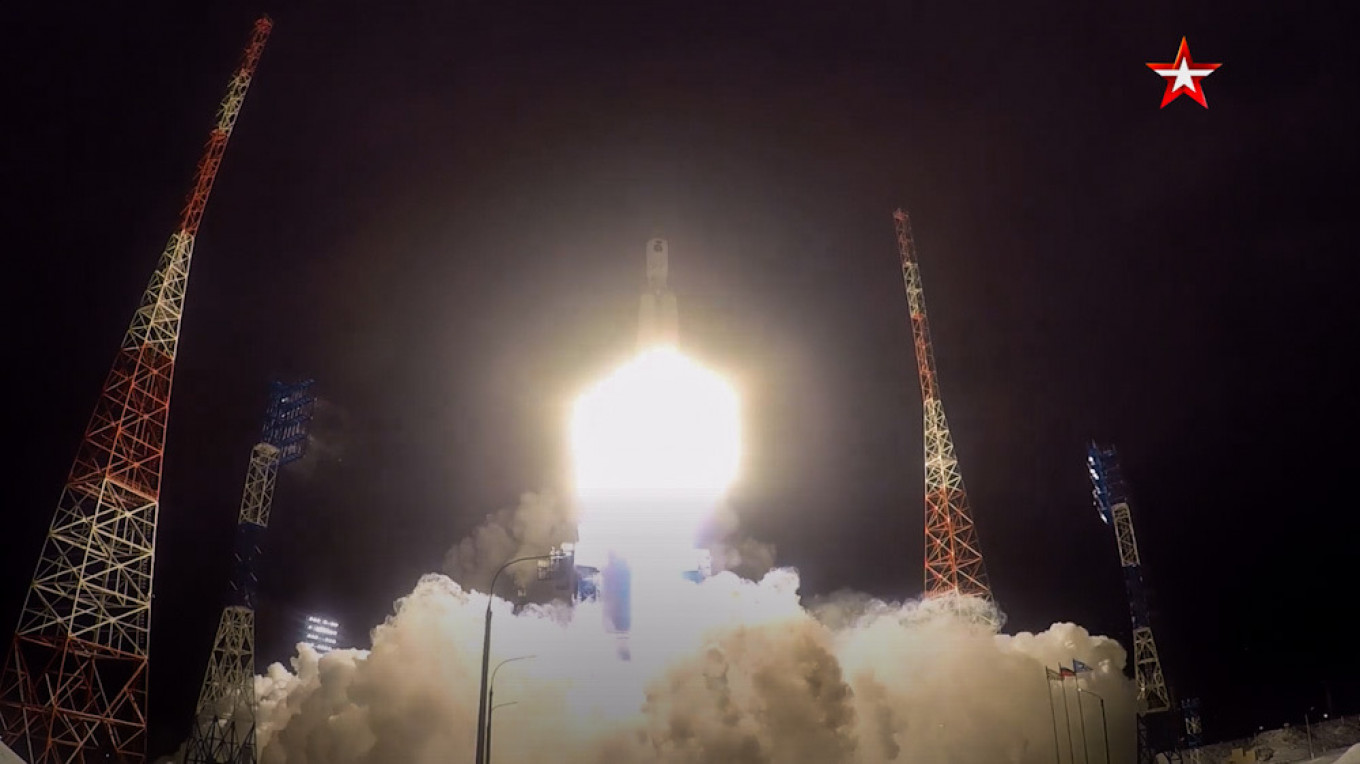
Russia successfully test launched its first post-Soviet rocket for the second time in six years following delays and glitches, Russia’s Federal Space Agency, Roscosmos, announced Monday.
A vital part of President Vladimir Putin’s efforts to revive the space industry, the Angara are the first new family of space rockets developed since the Soviet era. Angara launches have been rescheduled over the years after the Angara A5 heavy lift launch vehicle and its smaller version known as the 1.2 were launched in 2014.
Early on Monday, Roscosmos said the Angara A5 lifted off from the Plesetsk Cosmodrome in Russia’s far northwest and flew for 12 minutes and 28 seconds before “a spacecraft weight mockup separated from the third stage of the launch vehicle.”
“It flies, damn it!” Roscosmos chief Dmitry Rogozin said in a tweet following the successful launch.
The state-run TASS news agency published footage of the Angara A5 launch it said was shared by Russia’s Defense Ministry.
Roscosmos touted Angara’s ecological footprint because it does not use “aggressive and toxic propellants, significantly increasing environmental safety both in the areas adjacent to the launch complex and in the drop zones.”
Angara was commissioned in the early 1990s, when Russian space officials were concerned that an independent Ukraine might withhold deliveries of vital components used in Russian rockets such as Proton.
Angara A5 is intended to succeed Russia’s workhorse Proton launcher rocket.
The Vostochny Cosmodrome in Far East Russia, itself plagued by corruption scandals and delays, is expected to be the Angara rockets’ primary launch site.
